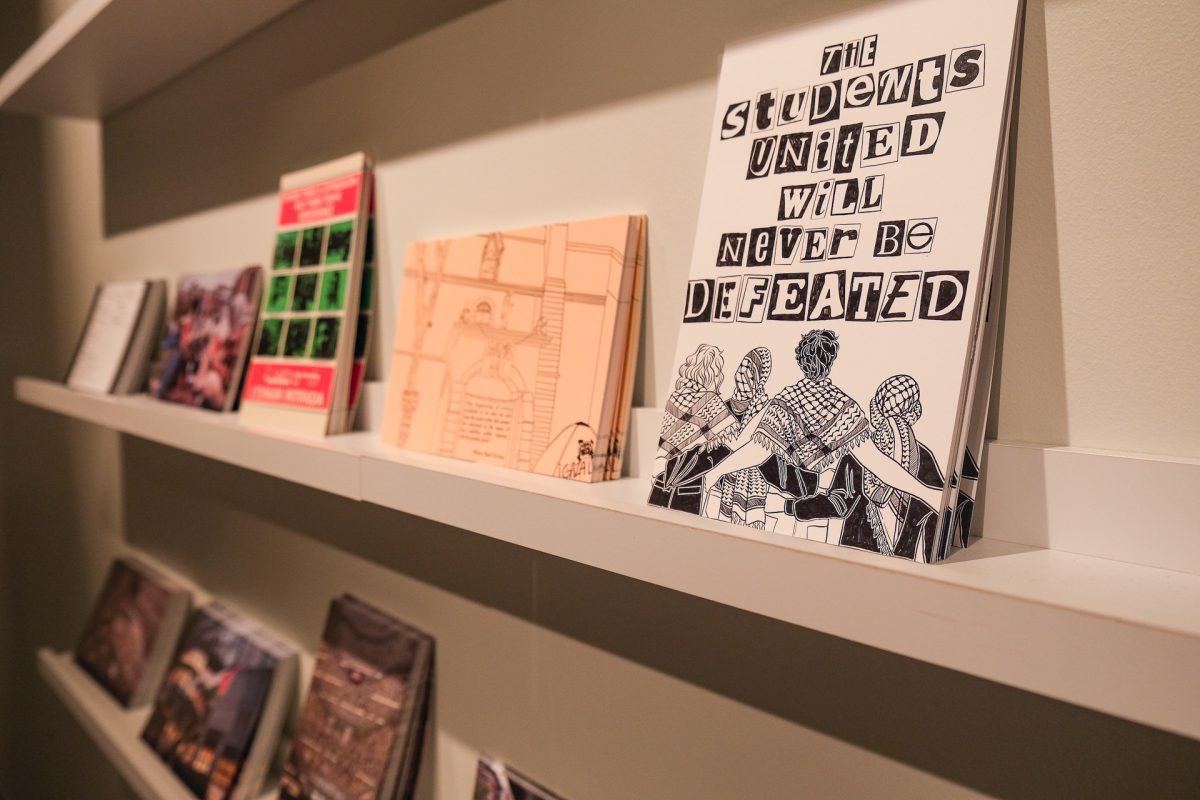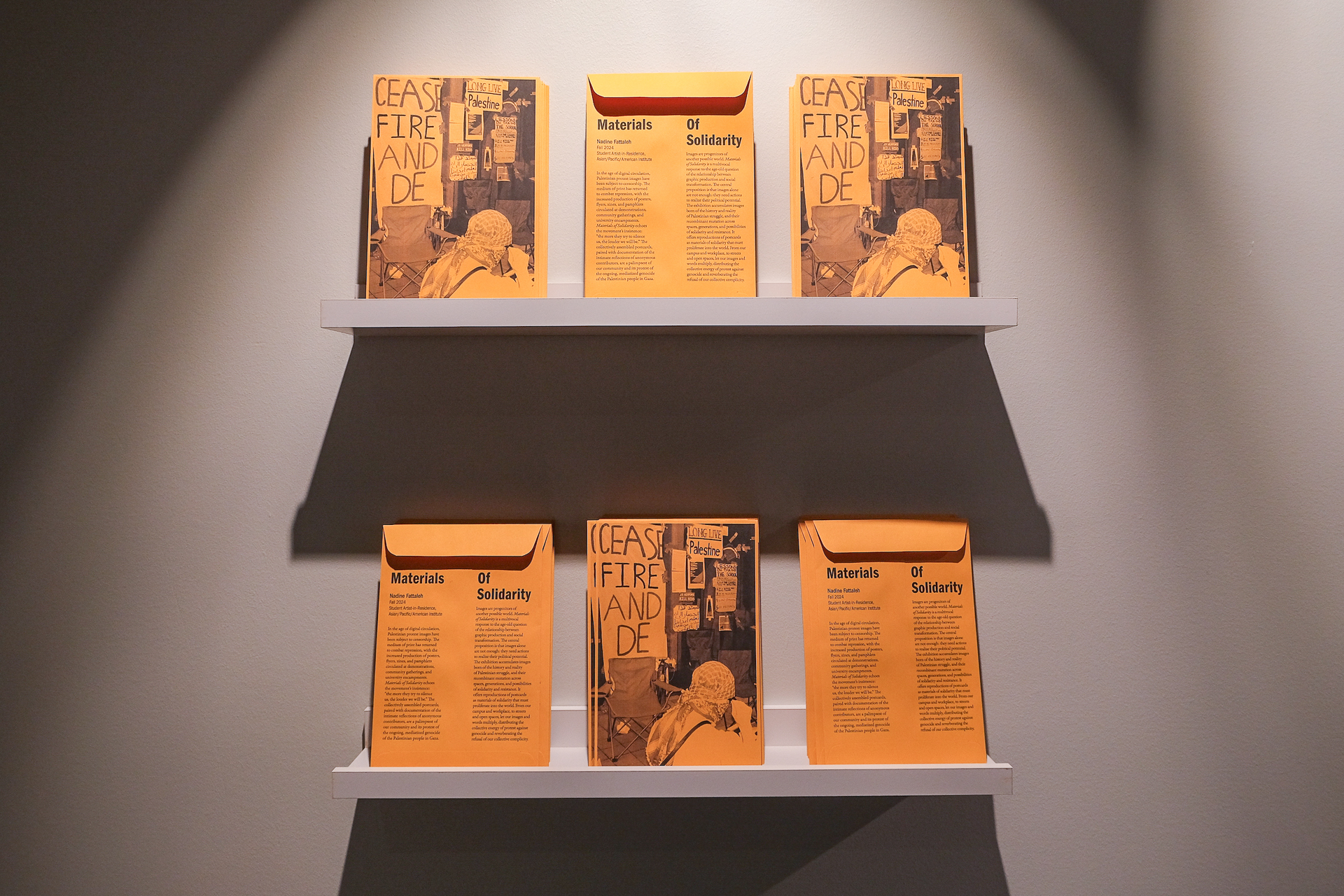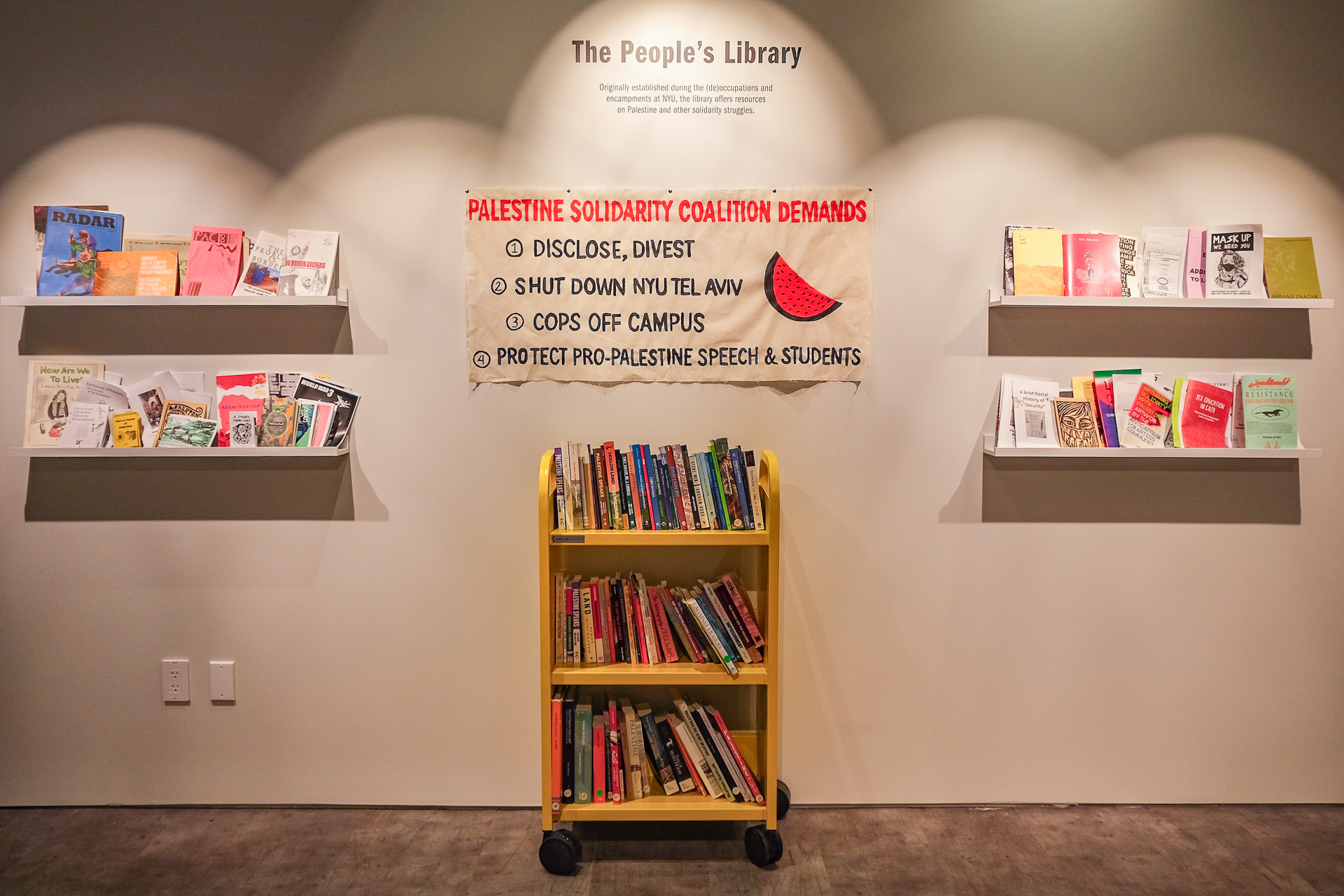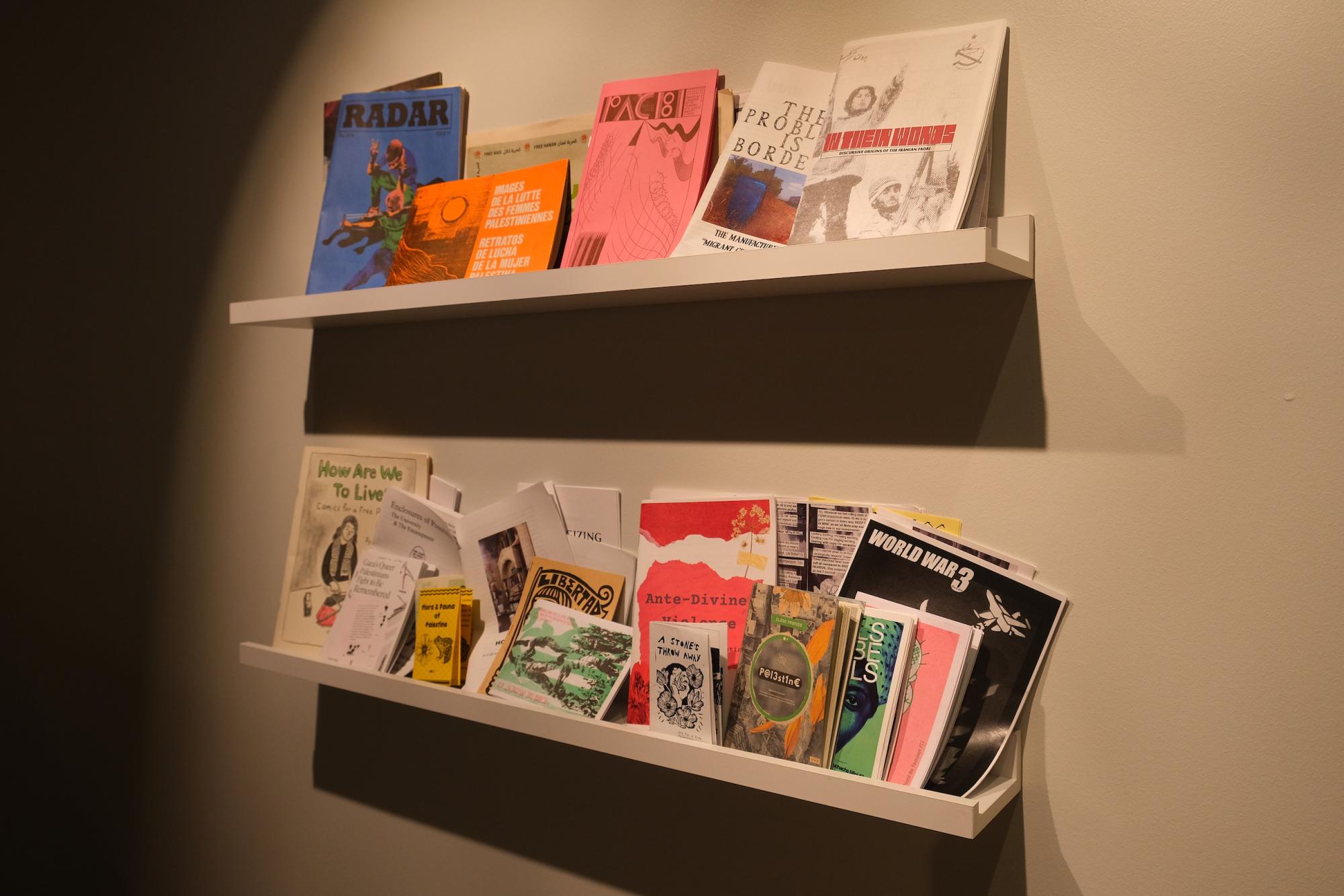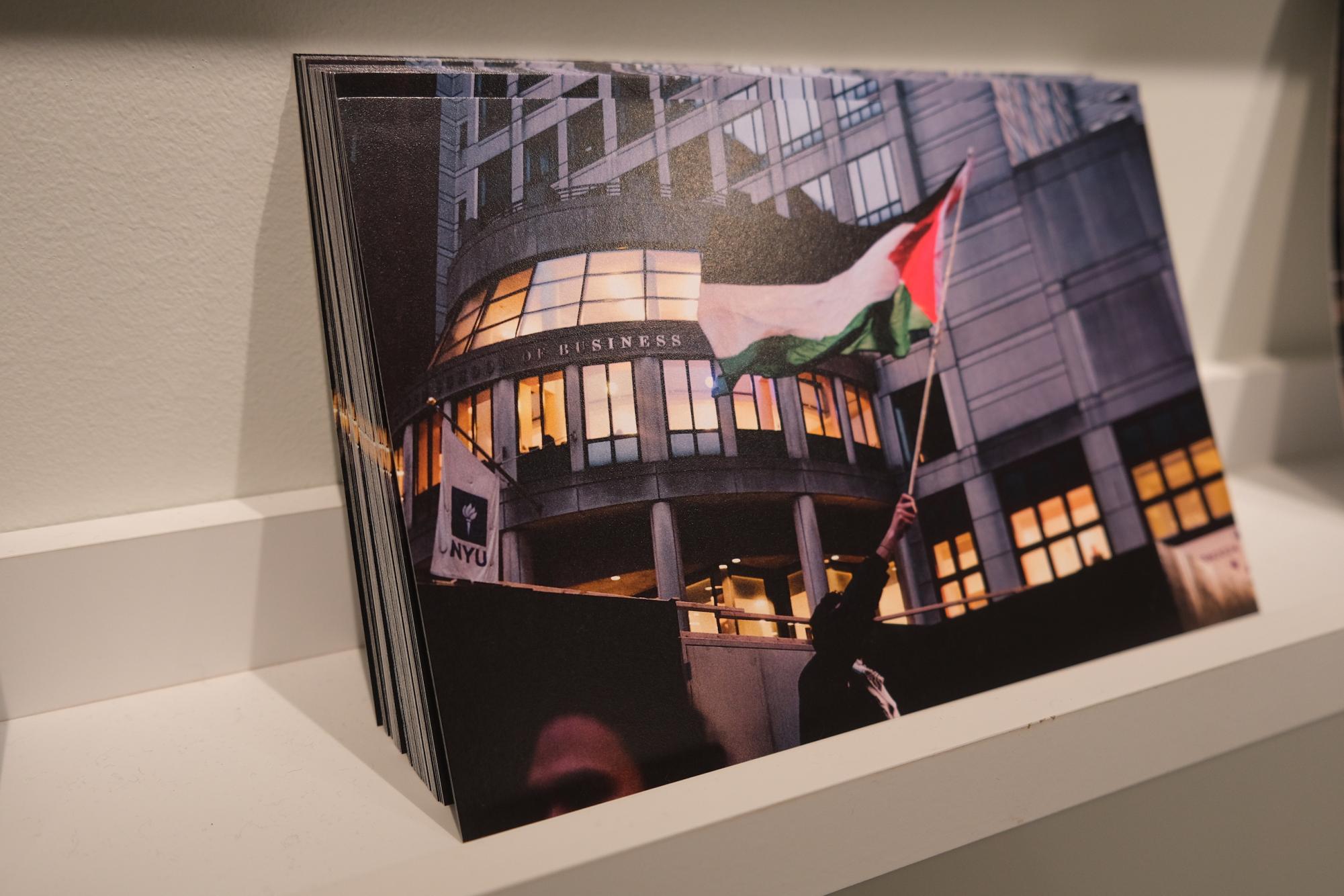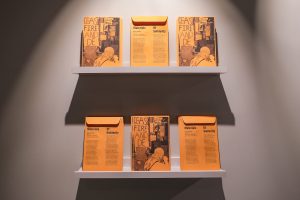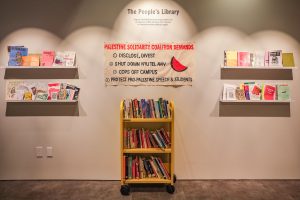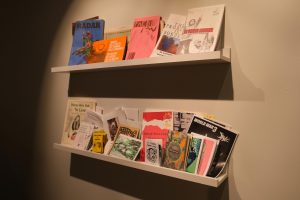“The students united will never be defeated” reads a postcard, the bold letters accompanying a black-and-white illustration of students in keffiyehs. Nearby, a photograph of a student waving the Palestinian flag is contrasted with the Stern School of Business’ gilded panels.
The “Materials of Solidarity” exhibition on the third floor of NYU’s 20 Cooper Square was curated by Nadine Fattaleh, a Palestinian activist and researcher who is the Asian/Pacific/American Institute at NYU’s student artist-in-residence for the fall semester. In “Materials of Solidarity,” Fattaleh encourages students to engage with the movement for Palestinian liberation.
Dozens of postcards, spanning an eclectic range of colors, styles and mediums are arranged on shelves in the gallery space. All together, these postcards powerfully communicate the energy and fervor behind the pro-Palestinian student movement.
One postcard features a blackout poem written over an illustration of a gigantic watermelon slice. The main material in the poem is from NYU President Linda Mills’ April 22, 2024 email to students titled “Events at Gould Plaza.” This email uses words like “hate”, “intimidation” and “disruption” in reference to the pro-Palestinian encampment on the plaza, which was swept by the New York City Police Department.
The writer reimagines the email as a rallying call, reading “join others / learn the chants / disrupt and witness.” The postcard illustrates how students have taken the initiative to deconstruct and reframe the narratives put forth by the university’s administration.
Each of the postcards showcased on the main wall were created by NYU students, and viewers are encouraged to take the postcards lining the shelves for themselves and distribute them after their visit.
“I think collaborative and participatory art is often at the center of all exhibitions on social movements,” Fattaleh wrote in an email to WSN. “And my intention was always to stay true to the voices and demands of the student movement itself.”
On the left side of the exhibition space is “The People’s Library”, featuring Fattaleh’s personal collection of zines in addition to books on Palestinian history, anti-imperialist and abolitionist texts — including texts and images she received from other Palestinians.
“The books are from the People’s Library, which started during our de-occupations of Paulson as a crowdsourced library that shared readings, knowledge and resources with both our community and the public,” Fattaleh said.
Two large maps of Gould Plaza and Greene Street Walk, the locations of the two encampments set up by student organizers at NYU last spring, line the right side of the space. The maps are in the style of architectural drawings and include labels highlighting features and people at the encampments, like “Barricade Erected by NYU,” “NYPD Riot Police Preparing for Arrests” and “Students Risking Arrest.” The use of the map shows the severity of the encampments and the perseverance of the students during the protests
“The movement insists that [the encampments] were (de)occupations of space; attempts to give back what the institution has privatized and sealed off from the public,” a description next to the maps reads.
Fattaleh’s exhibition offers a glimpse into the humanity and community of the pro-Palestinian movement. “Materials of Solidarity” prompts onlookers to take a participatory role — to understand the history and share artwork — ultimately emphasizing that the revolutionary spirit will endure.
“Materials of Solidarity” is on view at the Asian/Pacific/American Institute, located at 20 Cooper Square, from Tuesday to Friday until Dec. 6. It is free to the public, although non-NYU guests are required to register in advance.
Contact Sydney Chan and Julia Kim at [email protected].
























































































































































